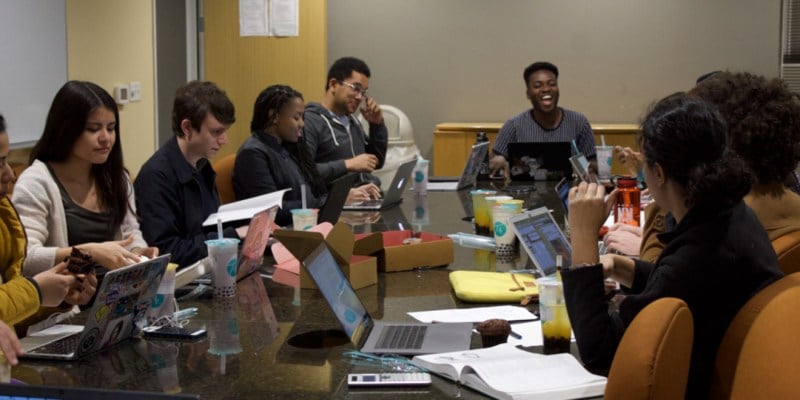In its 27th meeting, the 19th Undergraduate Senate focused on the transition to its newly elected 20th Senate. The Senate also discussed a proposed bill regarding speakers invited to campus by student groups.
Current senators certified all election results except the 15th Senate seat, which is currently set to be occupied by Matthew Wigler ’19. Tim Vrakas ’21, the runner-up for the final position, plans to contest the results of the election based on a discrepancy in the ASSU election rules regarding upperclassmen representation.
Wigler, who got 457 votes, received fewer votes than five rising sophomore candidates, including Vrakas, who received 117 more votes than Wigler did. However, Wigler was elected because of a bylaw mandating that at least three Senate members be upperclassmen.
Although the 2013 ASSU Constitutional Amendment creating the “upperclass district” was passed by student referendum, it was never ratified by Stanford’s president. Therefore, the current ASSU Constitution does not mention the upperclass district, stating only that “[t]he candidates equal in number to the number of available Undergraduate Senate seats who receive the largest number of votes shall become members of the Undergraduate Senate.”
Last year, a Constitutional Council case ruled that the bylaw applied to elections but not single-seat openings rendered vacant following an election. However, it also concluded that the bylaw had been incorporated unconstitutionally into the Senate bylaws, given that the 2013 amendment to which it referred was not officially made part of the ASSU Constitution.
Wigler argued that because the Constitutional Council case found that the bylaw applied to elections, and because it had been passed by the student body, it should apply to this election.
“It seems like this is a housekeeping error by which the President of the University just needed to sign this thing to put it into force, and that wasn’t done,” Wigler said. “I don’t think that that nullifies the democratic rule of the people through an amendment process that was carried out the same way that other parts of the Constitution were passed.”
Others, including senator Chapman Caddell ’20, argued that the Constitution supersedes the bylaws in situations where the two conflict.
“The constitutional amendment that we are talking about was passed democratically, but it wasn’t signed off on, and it isn’t in the Constitution,” Caddell said. “At the time of the election, the Constitution read this way. It is directly in conflict with what we have in the bylaws. The Constitution always supersedes the bylaws. It doesn’t mean that’s the way things should be, but the way things are suggest that the 15 people who get the most votes should be the 15 people on the next Undergraduate Senate.”
Senator Katie Hufker ’19 expressed concerns regarding the precedent that ignoring the amendment would set.
“If we set the precedent that we don’t have to follow the amendment because we didn’t bother to get it signed, that would be very scary because it would essentially allow the ASSU to overrule whatever the entire student body votes on,” Hufker said.
The Senators discussed potential options moving forward, including reaching out to the Constitutional Council for advice, bringing the amendment to President Marc Tessier-Lavigne to sign before the next Senate meeting or amending the Senate bylaws to agree with the current Constitution.
Senator Lizzie Ford ’20 noted that changing either the ASSU Constitution or the Senate bylaws should not affect the contested seat, given that the changes had not occurred by the time of the election. Ford’s seat on the Senate was the subject of last year’s Constitutional Council case.
ASSU Executive-Elect Shanta Katipamula ’19 cautioned Senators to consider why the amendment was passed before changing the bylaws.
“We know that historically it’s mostly freshmen who run for Senate,” Katipamula said. “The Undergraduate Senate represents all undergraduates, so I would like the body just to think about that and consider the consequences of what you are talking about right now.”
In addition, the Senate discussed proposed changes to a bill that would allow Senators the power not to fund student groups that invite guests perceived to be in violation of the Fundamental Standard.
In the newest draft, the Organizational Conduct Board (OCB) would determine whether an invited guest violated the Fundamental Standard. Currently, the OCB reviews the conduct of student groups on campus but it has no power over their funding. The Senate could then “choose to institute a funding penalty on the responsible student group.”
The Senate ultimately tabled the bill and resolved to vote on it in next week’s meeting.
Contact Erin Woo at erinkwoo ‘at’ stanford.edu.
